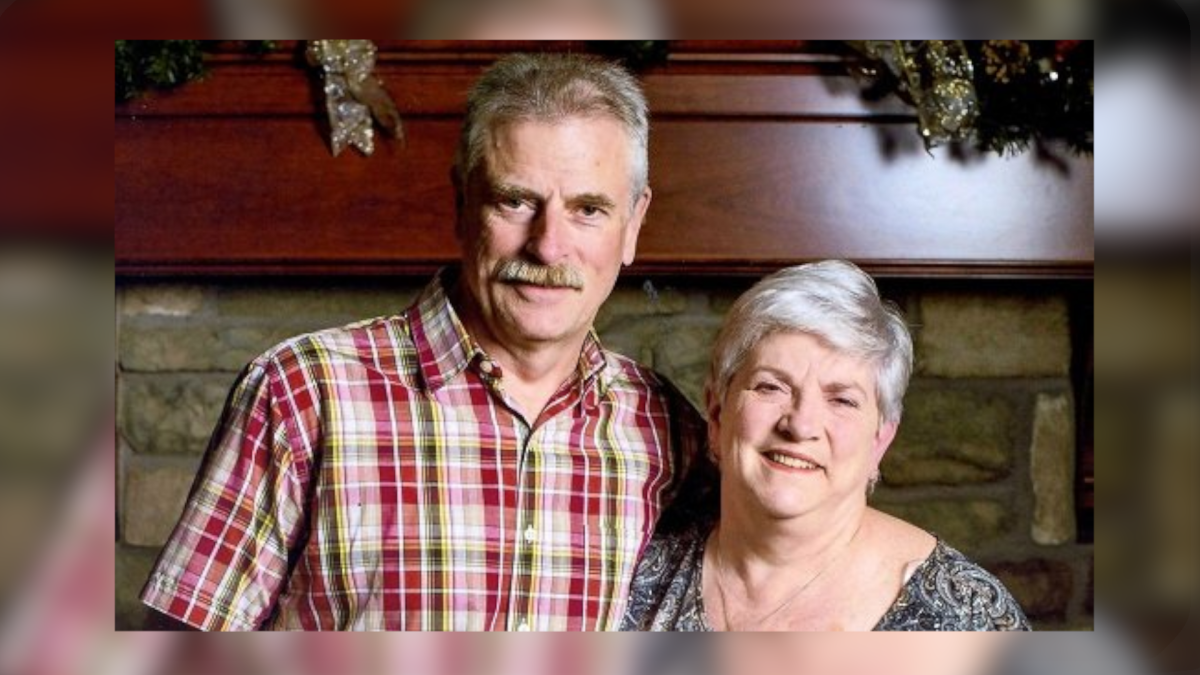The jury tasked with deciding the fate of a man accused of killing his mother and stepfather by setting fire to their Dundas home almost four years ago has heard closing arguments from both sides.

Richard Taylor, 46, is charged with two counts of first-degree murder in the deaths of Carla and Alan Rutherford, who died after a blaze was deliberately set in the master bedroom of their Greening Court home at about 3:30 a.m. on July 9, 2018.
Investigators have said the fire began as a result of someone pouring a “medium petroleum distillate” around the Rutherfords’ bed and igniting it with an open flame.
Carla, 64, was pronounced dead on the front lawn after firefighters pulled her body from the house. She had suffered burns to about 50 to 55 per cent of her body, her airways covered in black soot.
Alan, 63, managed to escape the house by jumping through the bedroom window. More than 90 per cent of his body was burned and he died in hospital about 12 hours after the fire.
Taylor, a former teacher at Hess Street Elementary School in Hamilton, has pleaded not guilty.
The crown alleges that his motive for the murders was financial and that he stood to gain more than $421,000 in the event of their deaths.
During the trial, it was heard that Taylor’s financial situation was a disaster and that it had been getting progressively worse for years; he’d been borrowing money from friends and family and lying about why he needed it.
He’d been falsifying bank records and keeping his wife Evangelia in the dark about the reality of their finances, but Crown attorney Janet Booy said that the deception was unravelling in the time leading up to the Taylors’ planned trip to Greece in the days following the fire.
“Evangelia was getting to the end of her rope, threatening to split their accounts. The deception … had reached its limit, and he knew that.”

Get daily National news
Texts between Taylor’s brother Chris and their mother showed that she had recently lent him $500 but Carla said she was done lending him money and had planned a “financial intervention” to discuss his borrowing.
That never ended up happening. Neither did the trip to Greece.
Court heard that Taylor had suffered a knee injury on the Saturday before the fire, falling down the basement stairs at the Greening Court home and on top of his mother.
Taylor had told police on July 10 that he couldn’t have done the murders because of the injury, saying he couldn’t even walk down steps or drive anywhere. Yet surveillance video from the evening of July 8, as well as in the days immediately following the murder, showed that wasn’t necessarily the case.
Some of the videos showed Taylor walking with a limp and a cane, while others showed him walking normally without any assistance whatsoever. He was also seen getting in and out of his vehicle and driving to a spot in rural Oakville, where he walked along a ditch for about 600 metres — again, with no apparent limp.
In an interview with police on Jan. 23, 2019, Taylor was asked about his knee injury and appeared to forget which leg had been impacted.
There was also surveillance video from a Cameron Avenue address in the minutes leading up to — and immediately following — the fire, showing a figure walking back and forth, lighting matches and throwing them.
Then there were the dying words of Taylor’s stepfather:
“Don’t call Rich. He did this. He’ll already know about it.”
That’s what neighbour Karen Monk told the court Alan said to her that morning when he knocked on her door, begging for help.
Other witnesses, including Monk’s daughter, her daughter’s boyfriend, paramedics, and police, testified that Alan had mentioned someone named “Rich” or “Rick” as having some involvement in the crime.
Jennifer Penman, Taylor’s defence counsel, pointed out that each witness heard some variation of the same thing, but no one could definitively say whether Alan knew for sure that his stepson was involved.
Taylor has claimed that he was sleeping in the living room in his Oakville home when the fire was set, and not in the bedroom with Evangelia because of his knee injury.
He also testified that his son, who was four at the time, came down briefly at around 2 a.m. and slept downstairs with him until he brought him back upstairs about half an hour later.
Taylor’s son wasn’t interviewed to verify that part of his alibi, but Booy pointed out that the child would have been too young to know what time it was, which means there would have been no way of verifying whether such an incident would fit into the timeline of events that night.
Penman argued that there is no direct forensic evidence tying Taylor to being at the Greening Court home that night, just circumstantial evidence.
She also said Taylor’s financial problems and spending habits persisted even after the fire and that while he certainly had irresponsible and “cringeworthy” spending habits, that doesn’t prove he would be motivated to murder his mother and stepfather, with whom he had a loving relationship.
“To intentionally set a fire and allow two people to be burned alive is incomprehensible,” Penman said. “The hate and rage that must have been present to commit that crime is obvious.”
Booy agreed that the act of killing one’s parents via arson is “incomprehensible,” but said that’s where the evidence points.
“Rich’s greed, his pride, and his life of deception led him to do the unthinkable.”
The Crown also argued that Alan’s dying words did, in fact, qualify as direct evidence rather than circumstantial. He was telling those witnesses who were there that night what he saw and who he believed was responsible.
“He knows he’s going to die. In his last breaths, he tells you who did it. He tells you, ‘It’s Rich.'”
The 12 members of the jury are set to begin deliberations on Wednesday, once they’ve finished receiving their instructions from Justice Toni Skarica.








Comments
Comments closed.
Due to the sensitive and/or legal subject matter of some of the content on globalnews.ca, we reserve the ability to disable comments from time to time.
Please see our Commenting Policy for more.